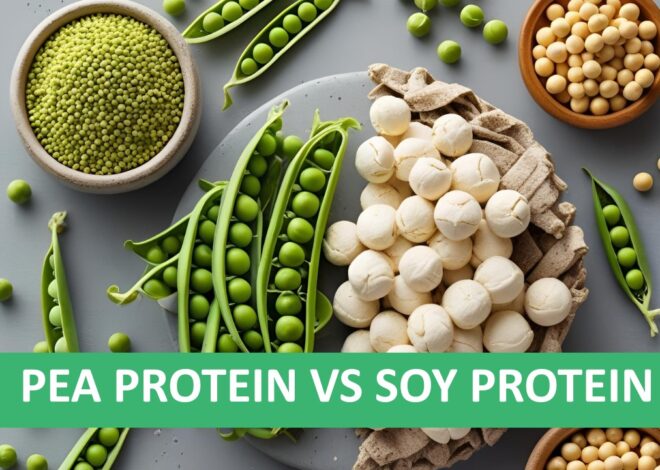
Does Protein Powder Expire? Uncover the Surprising Truth!
All you need to know about Protein powder expiry:
Protein powder is an incredibly popular supplement for muscle recovery and weight management. Whether you’re blending it into a shake or adding it to recipes, it’s a convenient way to meet your nutrition needs. I’ve found it to be a kitchen staple, especially for quick post-workout meals. The U.S. market is full of options catering to health-conscious people who rely on these powders to boost their dietary intake.
Despite its benefits, it’s important to know about Protein powder expiry check the expiration date on your container. While some additives may extend its shelf life, proper storage is crucial to keep it fresh and effective. A dusty tub in the cabinet might still be safe to use shortly after its expiration, but always check for signs like bad smell or clumping. Personally, I ensure my protein stays usable by keeping it in a cool, dry place.
Do Protein Powders Expire?
Yes, protein powders can expire, but the expiration date often reflects quality rather than safety. Properly stored powders—kept in a cool, dry, dark place with the lid tightly sealed—may remain safe to use beyond the date. Over time, the nutritional value, taste, and texture may degrade due to factors like moisture, heat, and oxidation. Signs of spoilage include a rancid smell, clumping, discoloration, or a bitter taste. While they’re less prone to bacteria, expired powders should be discarded if any of these changes are detected. Always follow storage guidelines for best results.

Diving in depth of Protein Powder Expiry:
Protein powders are a convenient choice for health-conscious individuals, whether you’re an athlete, a weekend warrior, or simply improving your diet. These powders are carefully formulated to provide a lengthy shelf life. Protein powder expiry depends on the type and ingredients used. Whey and casein, derived from dairy, might expire faster than plant-based options like pea or rice proteins.Also read
To maintain freshness, store them in a cool, dry place away from direct sunlight. Experts like Sarah Schlichter, M.P.H., RDN, emphasize the importance of properly stored powders, which can last 9 to 18 months. Certain additives and emulsifiers extend longevity, but those with fewer ingredients may expire quickly. Check for a best before date as a reference, even if not all products include it.
Protein Powder Basics
Protein powders are a convenient and inexpensive way to increase daily intake while supporting overall health. They’re not just for muscle gain; research highlights additional benefits, like fat loss, blood sugar stabilization, pressure control, and improved bone health. Personally, I’ve noticed how versatile these products can be, especially with their natural and artificial flavors and thickening agents that provide a creamier consistency and satisfying mouthfeel. Also read How Protein Powder Is Made: Secrets You Need to Know. Protein powders are made from various sources, including:
- Milk
- Soy
- Collagen
- Pea
- Rice
Some protein powders feature a combination of:
- Fast-digesting whey for quick absorption.

- Slow-digesting casein for sustained nutrient release.

These protein powders have many are enriched with additional nutrients, such as:
- Fats
- Carbohydrates
- Vitamins
- Minerals
These products are adaptable to various fitness and health goals.
Can You Use Expired Protein Powders?
Checking Protein powder expiry date doesn’t always pose a health risk, but it may affect freshness and potency. Over time, its quality, taste, and nutritional value may degrade gradually. As Schlichter notes, this could lead to issues like altered flavor, poor mixing, or reduced protein content. If the powder smells off, appears significantly different, or develops an odd texture, it’s safer to discard it.
Manufacturers use terms like best-by, sell-by, or expiration dates on their labels to indicate quality, not necessarily safety. These criteria are not legally required, so it’s up to the consumer to assess the supplement after the marked date for Protein powder expiry. A properly stored container helps maintain its freshness, flavor, and nutritional value, ensuring a satisfying experience even close to the date.

Potential Risks of using expired protein:
Nutrient Degradation
Over time, nutrient degradation in expired protein powder may reduce its effectiveness in supporting muscle recovery and growth.
Altered taste and texture
Changes like altered taste and texture can make it unpleasant or even unappetizing, with a gritty feel or rancid odor.
Digestive Discomfort:
In some cases, consuming spoiled powder may lead to digestive discomfort, such as bloating, gas, or an upset stomach.
Reduced Protein Content
Though protein powders are less likely to become contaminated due to the absence of water or moisture, improper storage may accelerate these issues. As Schlichter advises, keeping them in a cool, dry place is essential for preserving their quality and avoiding reduced protein content that may affect intake goals. Proper care ensures your supplement remains effective and safe.
“Protein powders are less likely to be contaminated with bacteria since they’re not normally subject to water or moisture if properly stored in a cool and dry place,” explains Schlichter
Can expired protein powder make you sick?
With the exception of infant formula, expiration or use-by dates reflect quality rather than safety. Protein powders, as low-moisture foods, are less prone to bacterial growth. A study found that lysine in whey protein decreased from 5.5% to 4.2% in 12 months when stored at 70°F (21°C) with 45–65% humidity. Proper storage slows oxidation, which damages fats and reduces protein content.
At 113°F (45°C) over 15 weeks, oxidation increased significantly, altering taste and causing a rancid smell, bitter taste, or clumping. Signs like these indicate spoiled powder that could make you sick, regardless of the expiration date. Additives in some products may extend their shelf life, but improper storage under high humidity or heat accelerates deterioration. Always store protein powders in cool, dry conditions to maintain quality and safety.
How to Tell If Your Protein Powder Has Gone Bad
Check the Expiration Date:
Checking the expiration date or best before label on the packaging is the easiest way to spot spoilage. If it’s expired, the quality may be compromised.
Inspect for Unusual Odors:
Perform a sniff test for unusual odors; fresh powder typically has a neutral or slightly sweet aroma, while a foul smell suggests spoilage.
Examine for Clumping or Discoloration:
Visually inspect the powder for clumping, discoloration, or signs of moisture. Spoiled powder often loses its consistent texture.
Taste-Test with Caution:
A cautious taste-test can help, but discard it immediately if it tastes off, bitter, or rancid. Always trust these signs to avoid potential risks.
Signs of Spoilage or Degradation:
Beyond the best-by date, changes in color, smell, or texture can indicate that your protein powder has spoiled. A darker appearance, a rancid odor, or difficulty to mix are clear signs. These issues arise from chemical reactions within the powder, like Maillard browning, which occurs when proteins react with carbs, breaking down the essential amino acids and reducing the supplement’s quality.
Exposure to heat, light, or humidity can make the fat in the powder unstable, causing it to turn rancid. If your powder shows any degradation, discard the canister immediately to ensure safety and effectiveness.
Understanding Shelf Life and Factors Affecting It
The shelf life of food and dietary supplements, including protein powders, reflects their optimal quality after production. Though manufacturers aren’t required to include an expiration date, many voluntarily add a best-by stamp. A study shows that whey protein retains quality for 12 to 19 months when stored at 70°F (21°C) and 35% humidity. Factors like protein type, added ingredients (e.g., lecithin, maltodextrin), and packaging in tightly-sealed opaque containers influence longevity.
Over time, nutrients degrade, changing flavor and reducing value. Milk-based powders may degrade faster than vegan options. Heat, light, and moisture further accelerate spoilage. The FSIS recommends using a best-by-date instead of an expiration date, as many supplements are still safe to consume if properly stored. Always check for a funny smell, discoloration, or other signs of degradation and follow label guidelines to maintain taste and nutritional quality.
Decoding Expiration Dates
Expiration dates contribute significantly to food waste in the United States, as many items are thrown away once they’ve passed this date. The Food Safety and Inspection Service (FSIS) urges manufacturers to use the best-by-date phrase instead of an expiration date.
It’s generally safe to consume dietary supplements like protein powders beyond the best-by date, provided they’re stored properly and show no signs of degradation, such as a funny smell or change in color. Always check the label for storage guidance to maintain the nutritional quality and taste of your supplement.
How to Store Your Protein Powder
“Protein powder should be stored in a cool, dark, and dry place to avoid moisture and oxidation from light or heat,” advises Schlichter. Maintaining proper temperatures between 70 to 72 degrees Fahrenheit ensures a longer shelf life.
Always close or seal the container to prevent particles or moisture from entering. For unsealable bags, consider double-bagging or using a ziplock bag to completely seal the contents for optimal protection.
Storage Guidelines for Prolonged Freshness
Heat, moisture, and light negatively impact the quality of your protein powder. To maximize freshness and prolong use, always store it in a cool, dry, and dark place.Research indicates that most powders store well at ambient room temperatures, ideally below 85 degrees Fahrenheit. Always keep the lid tight to protect your supplement from moisture and light
Safety Precautions and Quality Assurance
Storing protein powder in a cool, dark place like a cupboard helps prolong freshness. Avoid placing the canister on the refrigerator, which can be hot and humid.Ensure your scooper is dry before returning it to the container, and always keep the lid tightly closed. Using airtight containers or individually portioned packets can further maintain quality. While single-package options are pricey and less friendly to the environment, they may save money by preventing spoilage.
Frequently Asked Questions (FAQs):
What does the expiration date on protein powder mean?
The expiration date indicates the period when the protein powder is at its peak freshness and quality. It does not necessarily mean the product becomes unsafe immediately after the date.
Is it safe to consume protein powder after the expiration date?
Yes, protein powder can often be safely consumed past its expiration date if stored properly and shows no signs of spoilage like an unusual smell, discoloration, or clumping.
What are the signs that protein powder has expired?
Signs include a rancid smell, bitter or off taste, clumping, discoloration, or a gritty texture. These indicate spoilage and degraded quality.
How should protein powder be stored to extend its shelf life?
Store protein powder in a cool, dry, and dark place, such as a cupboard. Ensure the lid is tightly closed and avoid exposure to heat, light, and moisture.
Can protein powder lose its nutritional value over time?
Yes, over time, the nutritional content, including protein quality, may degrade due to chemical reactions, particularly if the product is exposed to poor storage conditions.
What is the ideal temperature to store protein powder?
Protein powder should be stored at ambient room temperatures, ideally below 85°F (29°C), to maintain its freshness and quality.
Is transferring protein powder to an airtight container helpful?
Yes, transferring protein powder to an airtight container can protect it from moisture, light, and external contaminants, extending its shelf life.
Are individually portioned protein powder packets a good alternative?
Individually portioned packets can help maintain freshness and reduce waste, especially if protein powder isn’t used daily. However, they may be more expensive and less eco-friendly.
Conclusion:
Protein powders are popular supplements that come from a variety of animal- and plant based sources. Though research suggests that whey protein has a shelf life of 9–19 months, many protein powder manufacturers list an expiration date of 2 years after production, which is likely made possible due to additives that extend shelf life. Consuming protein shortly after its expiration date is likely safe if there are no signs that it has gone bad, which include a rancid smell, bitter taste, changes in color, or clumping.








